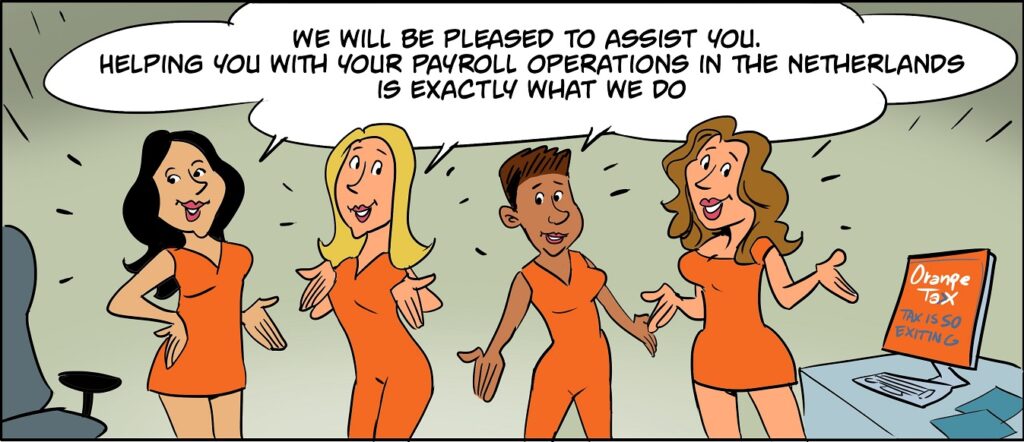Stock options exercised and tax, FAQ. One the question is asked by the employee what options they have. Indeed, what options does the employee have?
Stock options exercised and tax
The stock option is a right granted by the employer to the employee. The employer can present the employee with a target to be met. If such a target is met, the employee is provided with the right to purchase shares.
The advance for the employee is that the value against which the employee can purchase the shares is fixed up front. Let us assume EUR 100. If the market value is under EUR 100, there is no point in using this offer from the employer. The moment the market value is for instance EUR 170, the employer accepts you only pay EUR 100 for a EUR 170 share.
Employer, employee and terminology
The stock option is an agreement between the employer and the employee where options are granted. The moment the target is met by the employee, the employer vests the stock options. In the agreement with the employer is stated what period needs to laps before the vested stock options can be exercised. Exercises implies you effect your right. You purchase from the employer the shares at the pre agreed value.

Employer, employee and tax
The wage tax law states that all you receive from the employer is salary. There are exceptions to this rule.For instance toilet paper in the office is made available by the employer, but nobody assumes this is a taxed benefit. The stock options are not mentioned as exception.
That implies the result generated by the exercise of the stock option is taxed as salary. The tax rate that is applied by nearly all employers is the 49,5% tax rate. Why the highest tax rate? The employer is audited once in a while and if many years later it turns out not enough tax was levied, the employer needs to pay the difference plus a penalty. To avoid this, the highest rate is applied. If that rate is too high for the employee, the employee can claim back the excess via the income tax return.
Frequently asked questions stock options exercise:
How can I minimize the taxation on the exercise?
You cannot. The employer is in charge of the taxation of the salary component. Please connect with your HR to learn more about that.
I moved to another country with much lower tax rates, surely that influences the stock option exercise?
No it does not. The moment the stock options were granted determines in which country the tax over the stock options is to be paid. Example. You work for a large US company, during your US period stock options were granted. Now you are in the Netherlands, you exercise, then US tax is to be paid over this salary component.
Unfortunately you are now a tax resident in the Netherlands, you need to report your global income, also this US taxed stock option income. A double taxation relief is provided, but we refer to that relief as a lousy relief. In other words, some Dutch tax is still to be paid over this US income.
Does the 30% ruling affect the taxation?
Yes it does, 70% of the result is taxed instead of 100%.
The stock options were granted while I had the 30% ruling. Now I exercise after the 30% ruling terminated, surely the ruling still applies?
No. The exercise is a salary moment, at that moment you need to be under the 30% ruling to be able to use the 30% ruling.
I have the 30% ruling, were granted stock options with the one employer. Now I work with another employer still under the 30% ruling, can the stock options be exercised applying the 30% ruling?
The 30% ruling is a per employer ruling. Only with the employer you have at the time of the exercise the ruling, the ruling can be applied. You no longer have the ruling with the one employer, hence the exercise is not under the 30% ruling.
I have been told the taxation can be delayed, I would like that.
Indeed. Only in case your employer has plans for an Initial Public Offering (IPO). The employer can forbid employees to cash on the exercise as that looks bad for the IPO. Under these circumstances the taxation can be delayed. No other.
I exercised the stock options, paid the wage tax and kept the shares. Do I need to pay tax again if I sell the shares?
Depends. If you own the shares and your wealth exceeds the EUR 57.000 threshold for Box 3 on January 1 of a year, you indeed pay Box 3 wealth tax.
If you sell the shares, than based on current rules (today is June 17, 2024) we do not know the principle of capital gain tax. However, due to the recent high court ruling that our Box 3 wealth tax is illegal, I foresee a change. In that change I foresee capital gain tax is going to be introduced. Than indeed you pay tax over the sale of the shares.
I have left the Netherlands, the stock options are exercised, do I pay Dutch tax over the exercise?
If the stock options were granted to you while you were employer in the Netherlands, the exercise is subject to Dutch tax.
Tax is exciting
We think tax is exciting. And from the outcome we see in stock options exercises, you must be excited about being granted stock options. The stock options are a direct result of your input with the employer. Hence a result of the employment and therefore taxed as salary.





